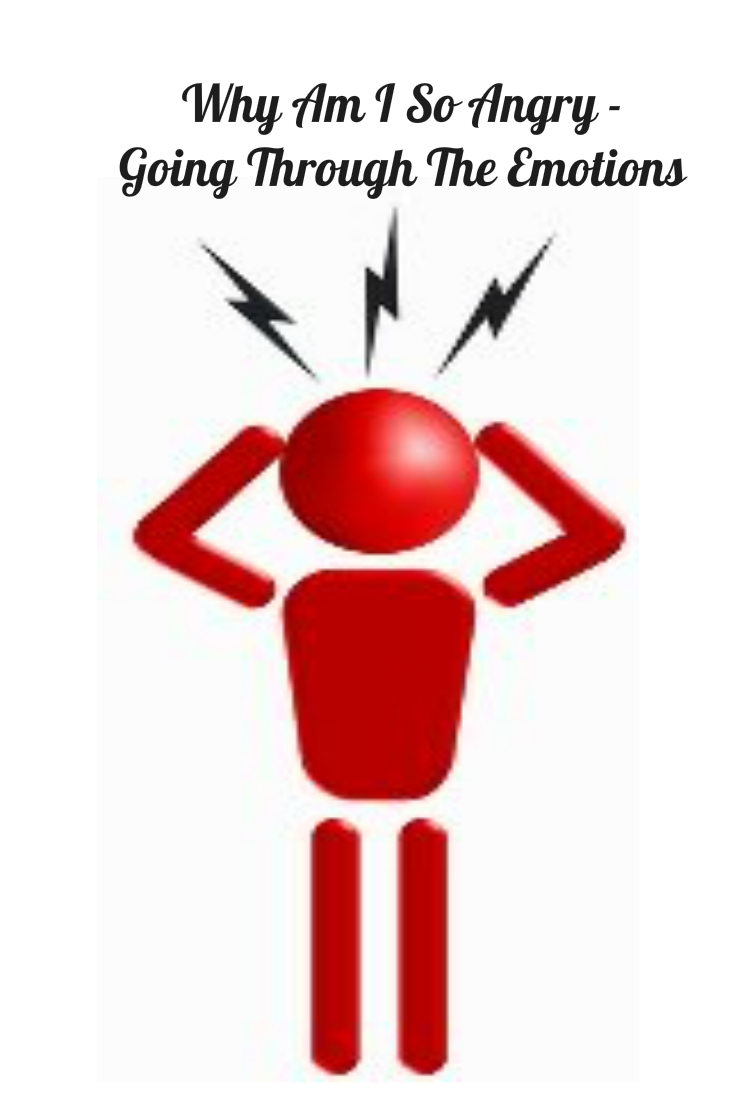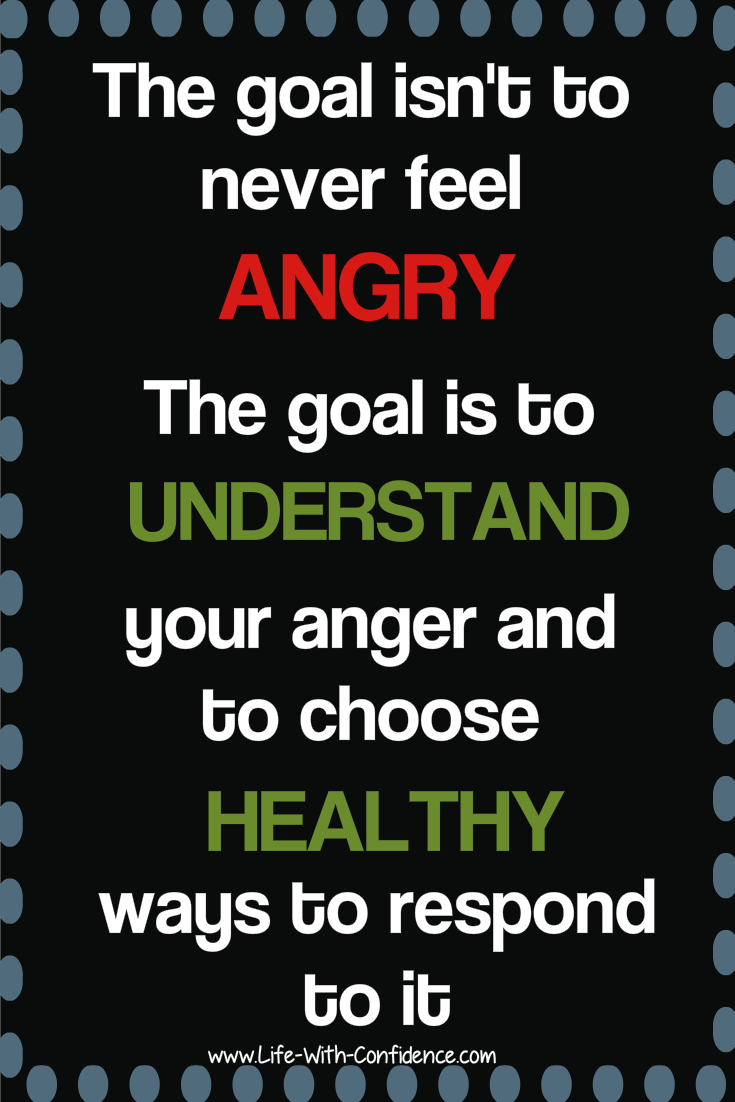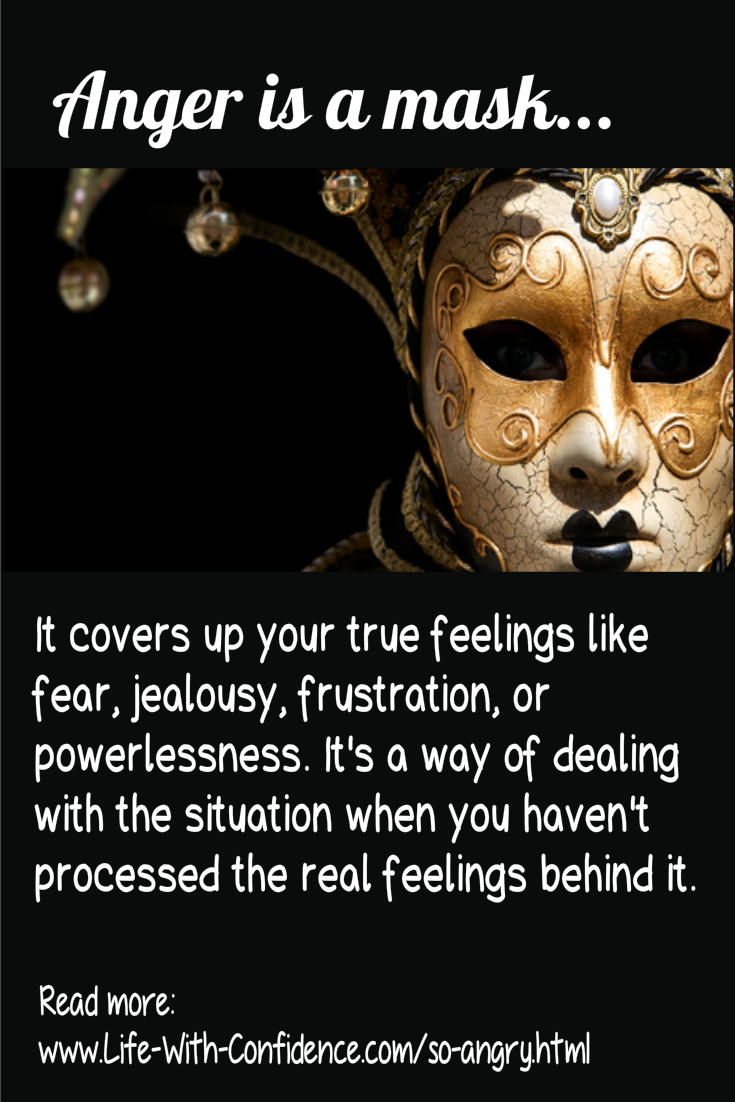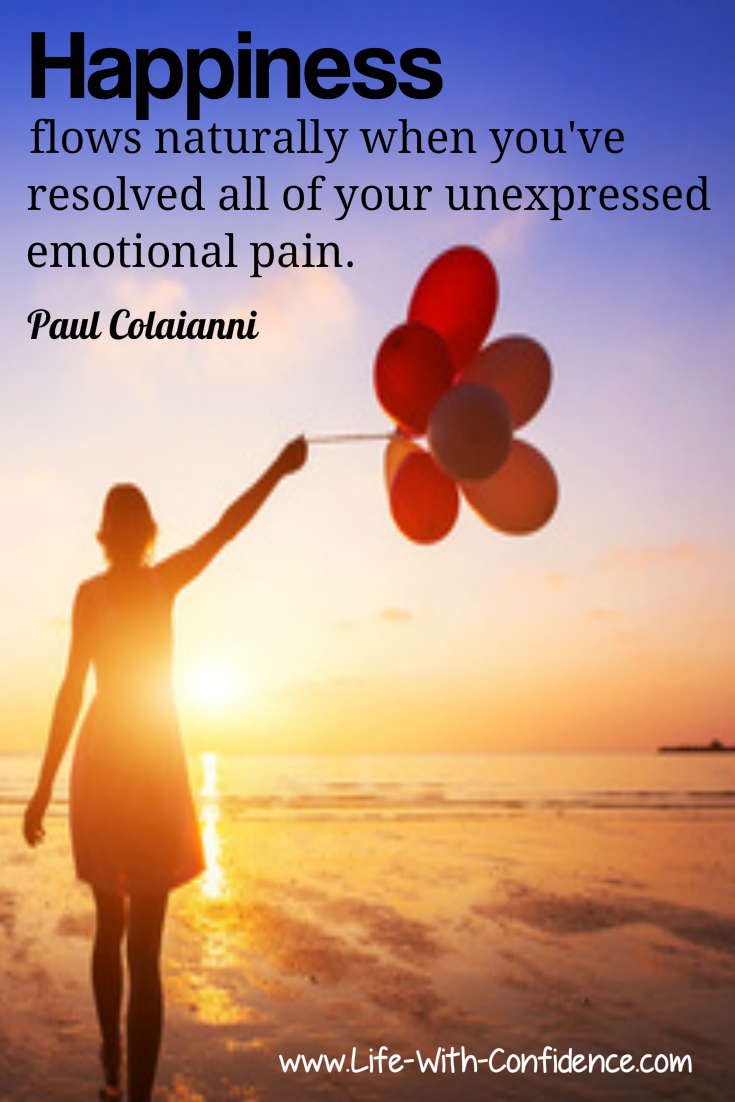It's Okay To Be Angry
Catherine
www.Life-With-Confidence.com
Everywhere you look, you're probably seeing messages to "Be Positive" and to let go of your anger and basically to teach yourself to never feel angry. But, the truth is that you will feel angry sometimes. You don't need to feel guilty about it either. It's okay to feel angry and being able to feel this particular emotion is a healthy thing for you to do.
Emotions like sadness, guilt, fear, envy, and anger are an important part of your "emotional intelligence". They are just as important as feeling joy, happiness, and contentment.
It's important that you don't deny your feelings or stuff them down because you consider them "negative" or feel like you "shouldn't" express those type of emotions. Just as you want to feel happy sometimes, it's important to allow yourself to feel sad sometimes and yes, even angry sometimes. It's part of the natural flow of human emotions. There will be up emotions and there will be down emotions.
As Pete Walker says in his book,
"Most people, who choose or are coerced into only identifying with 'positive' feelings, usually wind up in an emotionally lifeless middle ground - bland, deadened, and dissociated in an unemotional 'no-man's-land'."
This is definitely not what you want. So, what do you want with anger?
What you want is to be able to be aware when you're feeling angry, then take the time to understand your anger, and then finally choose healthy ways to respond to those feelings.
This is especially important to those who grew up in an environment where it wasn't safe to express their anger or they were taught to stuff down any emotions they had. If this describes you then you may have difficulty expressing your anger. You either don't allow yourself to feel it or you over-react to anger and end up hurting yourself and those around you.
Here are 9 reasons why it's okay to be angry:
1. It keeps you safe
Being able to feel anger is actually an important skill. If you deny your anger then you may deprive yourself of the ability to be aware when a situation is abusive or neglectful to you or even simply unfair. As Pete Walker says, "Those who cannot feel their normal angry or fearful responses to abuse, are often in danger of putting up with it without protest."
2. It motivates you to take action
Feeling angry about something can be the catalyst for you to finally take action and to motivate yourself to make positive changes in your life. For example, if you were working in an abusive work situation, feeling angry about it might be enough to get you to find a better job for yourself.
3. Denying your anger can cause unnecessary pain
Punishing yourself for feeling angry can lead to addictions, loneliness, and alienation as you try to avoid feeling the emotion. It may also lead to doubting yourself and not trusting your own feelings and emotions.
4. Anger is a normal emotion
What isn't normal is thinking you can go through life and never feel angry.
5. It's often the first step to processing deeper emotions
Anger is sometimes the first sign that something is wrong. It's a sign that you need to dig deeper and explore what you're really feeling deep inside. Allowing yourself to feel anger can also be a way to release painful emotions from the past. If you simply push away any feelings of anger without processing them you may cause yourself to feel deadened or empty inside instead of getting to the root of the problem.
6. If you can't accept your own feelings then you'll be terrified of other people's feelings as well
7. You won't be able to know what you want
"When our emotional intelligence is restricted, we often do not know what we really want, and can consequently struggle mightily with even the smallest decisions." - Pete Walker
8. If you try to deny your anger, you may appear as fake or phony to others
You may come across as being unnaturally happy and may end up pushing others away because they don't trust you. Something else that may happen is what Olivia Fox Cabane describes in her book
9. If you don't process the emotion, it will continue to fester
If you simply deny your anger, it will remain as an unprocessed negative emotion. This can lead to you feeling resentment towards the other person or even causing yourself illness. You definitely can't be happy.
As Paul Colaianni says in his article on denial, "Day after day of stored resentment chewing away at your insides. It’s
awful, and it will change your entire life because your world becomes
how you feel most of the time... People in denial feel the damage inside of them. It’s in their
stomach, or their chest and sometimes their head in the form of
headaches. Actual, physical ailments develop when your mind and body are
out of sync. And the ailments get worse the longer you hold onto to
denial."
In the same article, he makes the great point of, "You have a chance to figure out what bothers you when your partner [or anyone else in your life] causes emotional upset in you. And when you know what bothers you, you get to make healthy choices. The first choice is to realize, 'Wow, that bothers me! I have to work on that in myself. I don’t want to be bothered by that.' And the other choice is to say, 'Wow, that bothers me! That’s something I don’t want in my life. I am going to let them know that if they can’t change, I can’t stay.'"
The key point here is don't let anger fester in the back of your mind. You will only end up poisoning yourself if you do. Figure out what bothers you the most about the situation and then process the emotion. Figure out what your anger is trying to tell you. Work it through your system instead of letting it stagnate.
*****
Anger is just one of our many emotions and it's just as important as all of the others. Each and every emotion is a valuable tool for you to use for self-growth. Just as you need happiness, you also need anger. You need to accept all of your emotions in order to be emotionally whole.
Just to be clear, this doesn't mean it's okay to be angry in a destructive way or to lash out at others. That's not okay. What's okay is allowing yourself to experience the emotion of anger and then taking responsibility for those feelings by taking the time to understand the emotions happening behind your anger. See my "Why Am I So Angry?" article for more info on this. Once you understand why you're feeling so angry then you choose to express your anger in a healthy way.
This way you're still honoring yourself and all of your emotions which in turn leads you to be emotionally balanced and also able to develop a healthy self-esteem. You're using your anger in a positive way and that's just good for everyone.
Further Reading
#ad
Related Articles
Why Am I So Angry All The Time?
If you find yourself feeling angry all the time then take the time to understand your anger. Anger is a mask for other emotions. In this article, you'll learn about 11 possible emotions happening behind your anger. Learn to understand your anger and then you can make far healthier decisions for yourself as well as dealing with the anger so you don't feel angry all the time. You deal with the real situation instead of just the surface emotion.

Why Am I So Angry? Going Through the Emotions
Part two of the above article, "Why am I so angry all the time?" In this article, we go through an example of feeling angry and examine some possible emotions happening behind the scenes.
Self Growth Through Anger
Anger can be a valuable emotion if you know how to use it. In this article, I show you two steps to use anger as a positive way for self growth.
Why Am I So Unhappy?
It sounds so easy when people say "be happy". So, why is it so hard?
Here's a different way of looking at it and what you can do about it.




